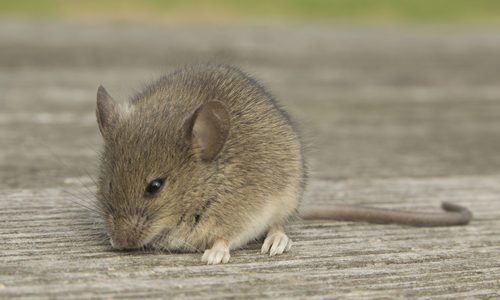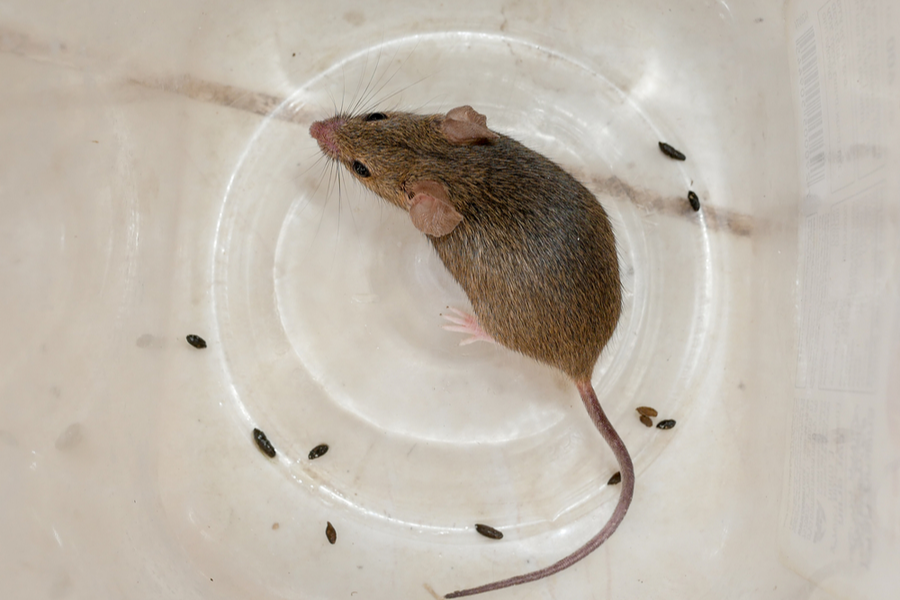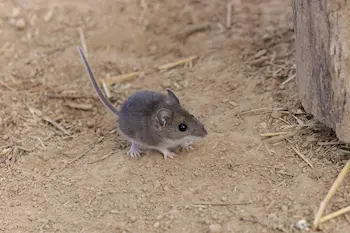
Are you hearing scratching behind the walls, or have you found unexplained droppings in your kitchen? Chances are you’ve got a mouse problem. Mice are small, but the issues they cause can quickly become large. From property damage to potential health risks, they’re more than just an inconvenience. That’s why reliable mouse pest control is so important. At Gregory Pest Control, we understand how fast these pests can multiply and how difficult it can be to handle them on your own.
Working with an experienced mouse exterminator means you don’t have to guess what’s happening or try a patchwork of DIY methods that only delay the problem. We know where mice like to hide, how they get in, and most importantly, how to keep them from coming back. Getting rid of mice isn’t just about traps or sealing cracks; it’s about identifying the root cause and creating an environment where these pests can’t thrive.
What to Know About Mice Prevention
Known for destroying property and spreading disease-causing pathogens, the presence of mice can be a major issue for your South Carolina home or business – requiring professionals to get rid of them and put preventative measures in place.
Mice are primarily nocturnal and omnivorous. In nature, they’ll eat whatever plants, leaves, stems, seeds, roots, fruits, berries, and insects they can get their paws on. If they’ve infested your home, they’ll expand that sustenance pool to anything they can find in your cupboards or trash. All varieties of mice are efficient reproducers, with a single female birthing between 15 and 120 children per year. They can add up quickly!
You can protect your space and avoid costly pest disruptions by maintaining a cleaner environment and bringing in the rodent control experts at Gregory Pest Solutions. Read on to learn more about mice infestations and effective prevention methods.
What Does a Mouse Look Like in South Carolina?
Mice in South Carolina tend to look much like the common house mouse found across the country. Small and slender, they have fur that ranges from light gray to brown on their backs, with a paler belly. Their ears are large relative to their heads, and their tails are about the same length as their bodies, covered in fine hair. The average adult mouse grows three to four inches long, not including its tail.
In South Carolina’s warmer climate, these rodents often find shelter indoors, especially when seeking protection from predators or rain. Their appearance doesn’t change much across regions, but their behavior might shift based on what’s available around them. If food sources, such as leftover pet food or open garbage containers, are plentiful, they’ll stick close and start nesting quickly.
The house mouse’s ability to adapt makes it a common invader throughout the state. It’s important to recognize these signs early because once a mouse finds a safe nesting site indoors, it won’t be long before it multiplies.
Signs you have mice
The first hint that you have a rodent problem usually isn’t seeing the mouse itself. These pests are quiet and cautious, most active when the house is still, usually at night. People often notice other clues first. One of the more common signs is the discovery of droppings near stored food or behind furniture. You might also smell a faint ammonia-like odor if the infestation has grown.
Another sign is the presence of gnaw marks on boxes, plastic containers, or wires. Mice chew constantly to keep their teeth from growing too long. Chewed insulation or wiring can create safety issues, including an increased fire risk. Scratching sounds within walls, especially at night, can indicate nesting activity. These pests are excellent climbers and can squeeze through gaps as small as a dime, so hearing movement overhead is not unusual.
Recognizing these signs early allows you to take action before the infestation spreads. Professional mouse pest control services like ours ensure you don’t waste time or effort pinpointing the source on your own.
Mice: Prevention Tips
A big part of mouse information involves understanding how and why they enter a home in the first place. These pests are curious and will explore any area that smells like food or provides warmth. They move indoors for shelter during cooler months because natural food sources become scarce.
Daily routines make a big difference. Always close pantry doors, keep kitchen counters free of food residue and don’t leave dirty dishes in the sink overnight. Laundry areas, garages, and basements should be kept tidy since mice are drawn to clutter where they can nest undisturbed. If you store boxes or supplies, make sure they’re off the ground and away from walls so you can spot activity more easily.
We’ve seen firsthand how fast mice can settle in. Once a nest is established, especially in areas like wall voids or insulation, it takes more than just traps to solve the issue. A combination of consistent hygiene and expert monitoring works best for long-term protection.

Protect your business by taking proactive steps. Download our Rat Prevention Tips PDF for expert advice on how to keep your premises rat-free and avoid these potential problems.
How Do I Prevent Mice?
The most critical part of preventing mice is removing access to food sources and shelter. Even a few crumbs can support a mouse for days. Keep dry goods in sealed containers and clean up spills right away. Garbage should be placed in bins with tight-fitting lids, and pet food shouldn’t be left out overnight. Mice are opportunists, so once they’ve found a steady food supply, they’ll return night after night.
Outside the home, you’ll want to trim tree branches and shrubs that touch the structure. These can act as highways for rodents, giving them easy access to roof lines and entry points. Seal any gaps around plumbing, doors, and vents. Mice don’t need much space to squeeze through. Moisture is another attractant, so fix any leaky pipes or clogged gutters.
Even with these steps, prevention isn’t always foolproof. That’s why it helps to work with professionals who understand rodent behavior. An experienced mouse exterminator can evaluate your home and spot things you might miss.
Interesting Facts About Mice
Mice are fast learners and can memorize paths through a home with surprising accuracy. They’re also surprisingly fast runners and excellent climbers. Once inside, they explore using their whiskers and sense of smell rather than sight. Strong spatial memory offsets their poor vision, which helps them avoid traps and navigate narrow spaces.
Mice can also pose health risks. One such risk is exposure to hantavirus, which can be present in mouse droppings and urine. This virus can cause severe respiratory illness in humans. While cases are rare, they’re a reminder that handling an infestation without proper safety gear can be risky. Professional help becomes essential when contamination in ventilation systems or shared living areas is possible.
Another notable trait is their breeding cycle. A female mouse can have up to ten litters per year, with as many as six babies in each litter. That’s why a small problem can grow quickly if not addressed by a skilled mouse exterminator.
How Long Can a Mouse Live Without Food?
Mice are driven by their need for food and rarely go more than a few days without it. They can last about three to four days without eating in ideal indoor conditions. Without water, their survival window shrinks even more. Because of this, mice tend to set up nests close to steady food sources, often within a few feet of the kitchen or pantry.
This short survival span means cutting off their food access, which is a strong first step in any mouse pest control effort. But even if you think you’ve cleaned thoroughly, mice are resourceful and will find crumbs, grease buildup, or improperly stored dry goods. Their small size and flexible bones make it easy for them to hide and survive in places most people wouldn’t think to check.
What Attracts Mice?
Mice are attracted to safe, quiet spaces with a reliable food source nearby. Basements, attics, and in-between walls are likely destinations. In the fall, they will seek shelter indoors vs burrowing for the winter.
Can Mice Hurt You?
Possibly – a single mouse may not seem like a big deal, but it could be the start of a bigger mouse problem under your roof. A mouse infestation can cause food contamination and the spread of disease through their droppings. Their gnawing can cause extensive damage to furniture and the structure of your home. Chewed wires can lead to potential electrical fires.
Do Mice Carry Fleas?
Yes. Besides being a nuisance unto themselves, mice can also infest your home with fleas and mites.
Can Mice Climb?
Yes. Mice are excellent climbers. They can climb up bricks, bushes, or trees to get into your home in areas you might not expect. They’re also powerful jumpers.
How High Can Mice Jump?
A standing mouse can jump up to a foot. A mouse with a running start can jump as high as two feet. Mice can climb, run, jump, and squeeze through a hole the size of a dime. Keep this in mind when they get into your pantry and other areas.
How Long Does it Take for a Mouse to Decompose?
Mice that die in your walls from poison or other means can leave a lingering odor. In warmer weather, it may take two weeks for a mouse to decompose – and in cold weather, it may take closer to three weeks.
How Long Does it Take for Mice to Have Babies?
Once pregnant, a female mouse will deliver her pups in about 20 days. She will be able to become pregnant again the day after giving birth and will have between five to ten litters in a year. If you have a mouse move in, it could turn into many quickly!
What Should I Do About Mice in Walls?
Mice are small but frequent eaters. They can only go two to four days without food. Before you think it’s easy to starve them out, consider that they may have food cached or go outside to forage.
Types of Mice in South Carolina
Whatever you need, we have you covered! When you call Gregory Pest Solutions about your pest problem, we send a technician out to your home or business to identify what kind of mice you have and how they’re getting in. Once we’ve determined the variety of mouse that’s made its nest, we’ll work to remove it. We will find the nests, clean the debris, and implement a plan to eliminate further infestation in the future. Our methods are thorough and environmentally safe for you, your pets, and the environment you live in.
Call us for whatever pest prevention assistance you need. We can help remove current infestations, prevent future ones, and develop implementable exclusion plans in South Carolina.
Schedule a free consultation today here.


